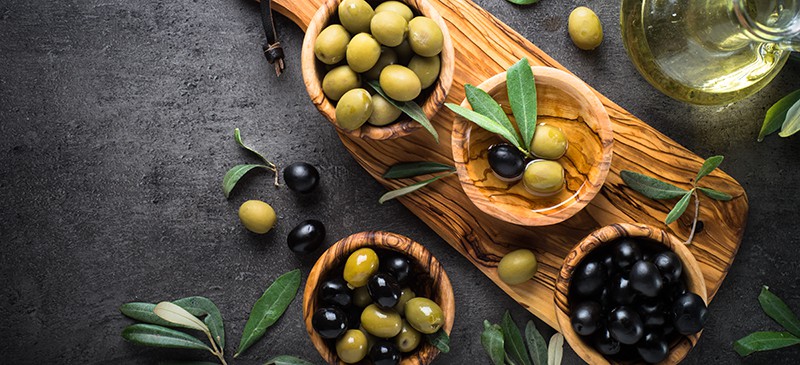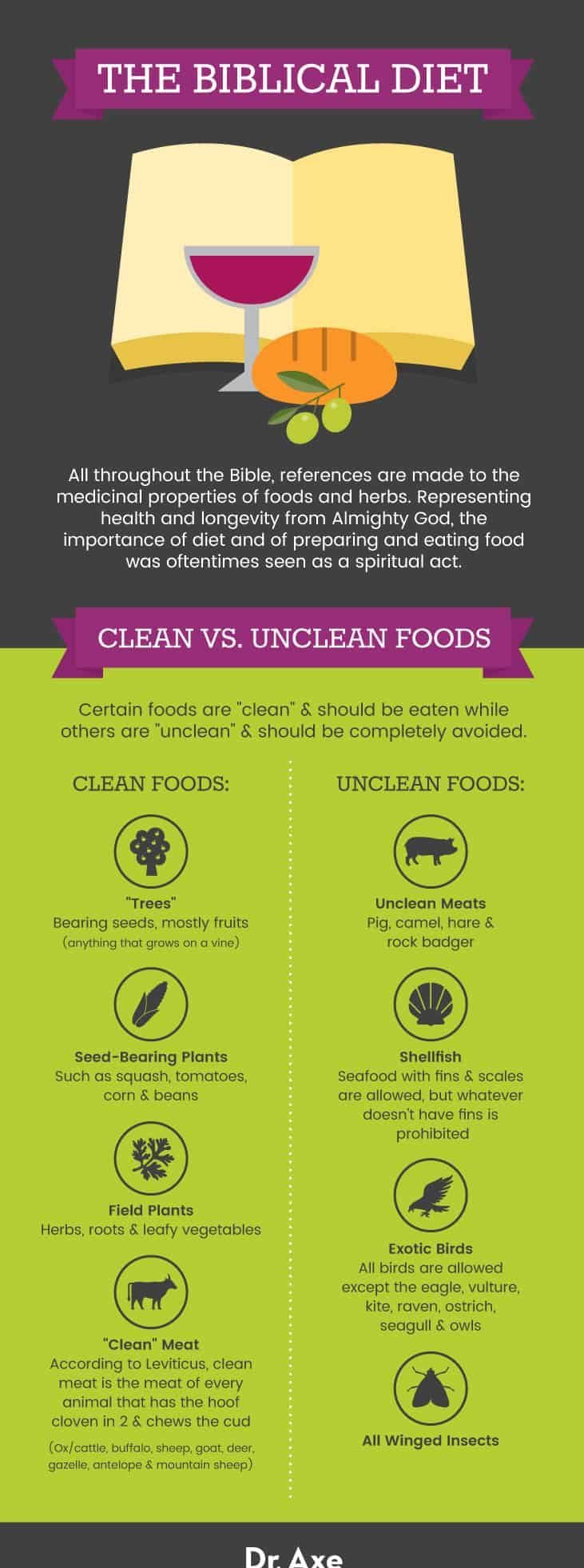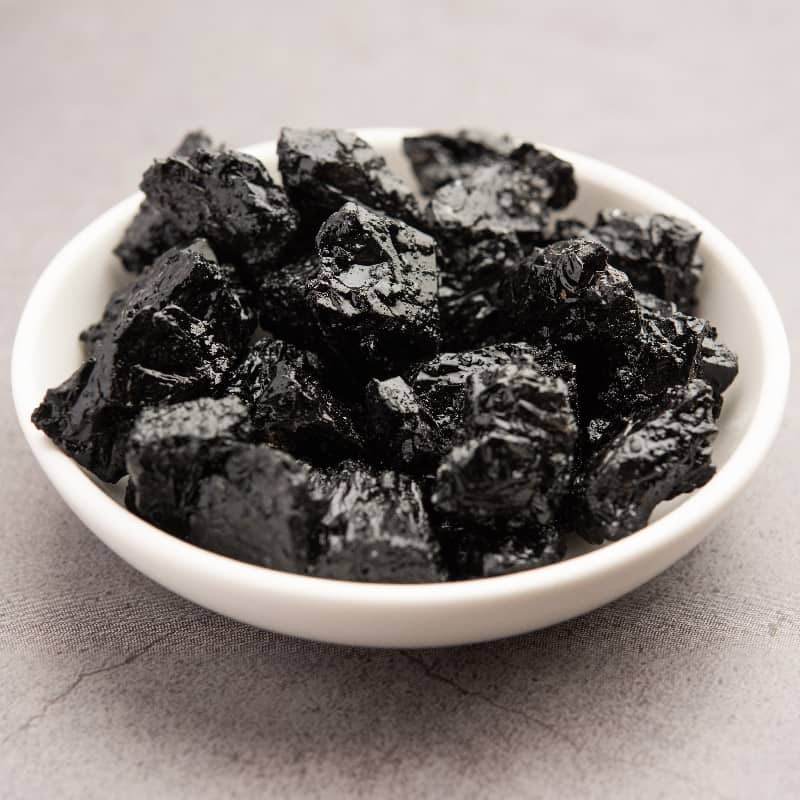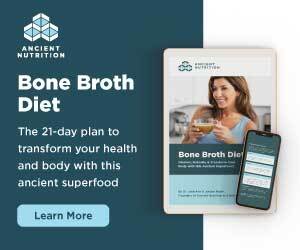This Dr. Axe content is medically reviewed or fact checked to ensure factually accurate information.
With strict editorial sourcing guidelines, we only link to academic research institutions, reputable media sites and, when research is available, medically peer-reviewed studies. Note that the numbers in parentheses (1, 2, etc.) are clickable links to these studies.
The information in our articles is NOT intended to replace a one-on-one relationship with a qualified health care professional and is not intended as medical advice.
This article is based on scientific evidence, written by experts and fact checked by our trained editorial staff. Note that the numbers in parentheses (1, 2, etc.) are clickable links to medically peer-reviewed studies.
Our team includes licensed nutritionists and dietitians, certified health education specialists, as well as certified strength and conditioning specialists, personal trainers and corrective exercise specialists. Our team aims to be not only thorough with its research, but also objective and unbiased.
The information in our articles is NOT intended to replace a one-on-one relationship with a qualified health care professional and is not intended as medical advice.
The Biblical Diet: Top 10 Bible Foods that Heal
December 25, 2022

“Whether you eat, drink or whatever you do, do all for the glory of God.” — 1 Corinthians 10:31
All throughout the Bible, references are made to the healing properties of herbs and foods. Representing health and longevity from Almighty God, the importance of diet and of preparing and eating food was oftentimes seen as a spiritual act. If you want to consume some of the most common foods mentioned for their health properties in the Bible, then you’ll want to try these top 10 healing Bible foods.
But first, let’s look at what foods the Bible considers clean vs. unclean. Of course, all of the healing foods land in the clean category.
What Are Clean and Unclean Foods?
When you go on the Bible diet, there are only certain kinds of food that you can eat. Certain foods are “clean” and should be eaten while others are “unclean” and should be completely avoided.
Acceptable Biblical Foods
- Trees whose edible yield is bearing seeds or is seed — To put it simply, this kind of food is mostly fruits. All fruits are acceptable in the Biblical diet, just as long as they come from seeds. Fruits from fruit trees are okay to eat, as well as anything that grows on a vine, a shrub or anything with a woody bark tissue.
- Plants whose edible yield is bearing seeds or is seeds — This classification refers to anything that may grow on plants that are not necessarily trees. Examples of seed-bearing plants include squash, tomatoes, corn and beans.
- Field plants — Field plants or “plants of the field” are the next thing on the list, which can consist of herbs, roots and green, leafy vegetables.
- Clean meat — Now this one’s a little detailed because the definition of clean meat is pretty complex. According to Leviticus, clean meat is defined as the meat of every animal that has the hoof cloven in two and chews the cud. Examples of clean meat include the ox (cattle), buffalo, sheep, goat, deer, gazelle, antelope and mountain sheep, just to name a few. Examples of unclean meat include pig, camel, hare and rock badger. The Bible also instructs us not to eat the blood of animals or to eat any meat that has been sacrificed to idols.
As for seafood, everything with fins and scales are allowed, but whatever doesn’t have fins such as shellfish is prohibited. For birds, everything is allowed except eagles, vultures, kites, ravens, ostriches, seagulls and owls. It is also noted that all winged insects are considered unclean.

Top Bible Foods
1. Olives and Olive Oil
Then it shall come about when the Lord your God brings you into the land which He swore to your fathers, Abraham, Isaac and Jacob, to give you, great and splendid cities which you did not build, and houses full of all good things which you did not fill, and hewn cisterns which you did not dig, vineyards and olive trees which you did not plant, and you eat and are satisfied. — Deuteronomy 6:10-11
The Jews were the elite olive merchants of their day. During antiquity, this precious commodity was used for its healing capabilities, for cooking, to light lamps, for soaps, for cosmetics and even for currency. Olive oil was considered so sacred to ancient culture that it was even used to anoint kings and priests. Hence, the Hebrew for Messiah, Moshiach, meaning “anointed one!”
Research has been conducted that proves regular consumption of olives and olive oil contributes to heart, brain, skin and joint health. They have even been linked to cancer and diabetes prevention. Needless to say, this sacred foodstuff has lived up to its ancient reputation.
2. Pomegranate
For the Lord your God is bringing you into a good land, a land of brooks of water, of fountains and springs, flowing forth in valleys and hills; a land of wheat and barley, of vines and fig trees and pomegranates, a land of olive oil and honey. — Deuteronomy 8:7-8
Tasty, messy and just recently gaining ground in the American market these past few years, several research studies have shown that pomegranates contain strong anti-inflammatory, anti-oxidant, anti-obesity and anti-tumor properties. According to researchers, “Many beneficial effects are related to the presence of ellagic acid, flavonoids, anthocyanins, and flavones, which seem to be its most therapeutically beneficial components.”
Subsequently, pomegranates are considered excellent foods to help battle such chronic diseases as cancer, insulin resistance, intestinal inflammation and obesity.
3. Fermented Grapes
May he kiss me with the kisses of his mouth! For your love is better than wine. (Song of Solomon 1:2)
I can’t make a list of top Bible foods without including grapes. Several epidemiological studies have shown that moderate alcohol intake, particularly drinking red wine, may lower the risk of cardiac mortality due to atherosclerosis. The general recommendation is no more than one glass (five ounces) of red wine per day except for men under the age of 65 who may be able to have two drinks per day.
When grape juice is fermented, natural anti-oxidant and flavonoid properties are exemplified through a substance called resveratrol. Consequently, researchers have focused much of their attention on evaluating the health benefits of resveratrol in recent years, which has been linked to chronic disease prevention and treatment including diabetes and obesity.
4. Flax
An excellent wife, who can find? For her worth is far above jewels … She looks for wool and flax and works with her hands in delight. — Proverbs 31:10,13
One of the most important plant fibers in the Bible, flax has been used to make linen for as long as recorded history. Although it has been widely replaced by cotton in recent years, flax remains one of the most important fiber plants in the world and one of the top Bible foods.
Having a rich history of medicinal use dating back to Babylon in 3000 B.C., flaxseeds have been wholeheartedly embraced by natural health and medical circles alike because it provides a natural, vegan source of omega-3 essential fatty acids, lignans and fiber. Subsequently, research shows that flaxseeds may be able to help fight against breast cancer, among other serious diseases.
5. Sprouted Grain Bread
Take wheat and barley, beans and lentils, millet and spelt; put them in a storage jar and use them to make bread for yourself. — Ezekiel 4:9
In the Book of Ezekiel, God gave the prophet Ezekiel a recipe for what has proven to be the perfect bread (sprouted grain bread) as science has recently shown us that it creates the “complete protein,” one that contains all essential amino acids. The main reason that Ezekiel bread is healthier than other breads is because the grains and legumes are soaked and sprouted, which makes them easier to digest — and as a result, is the only bread to make this list of top Bible foods.
Harvesting “sprouted grains” happens right after the seed has started to sprout, but before it has developed into a full-grown plant. During this critical growth state, the young shoot digests a portion of the starch to fuel its growth. Subsequently, because the grain’s starch has been utilized, the level of vital nutrients — including proteins, vitamins and minerals — are enhanced. Additionally, research studies have suggested that iron and zinc actually become more “bioavailable,” (i.e. more easily absorbed) after sprouting.

6. Raw Goat Milk
The lambs will be for your clothing and the goats will bring the price of a field. There will be goats’ milk enough for your food, for the food of your household, and sustenance for your maidens. — Proverbs 27:26-27
Raw milk is filled with the vitamins and minerals that contribute to a healthy dental fluid flow and help maintain strong teeth. Loaded with calcium, vitamin K2, magnesium, phosphorus and fat-soluble vitamins, researchers have carried out a comparative study on the properties of cows’ milk compared to those of goats’ milk and have discovered that goat milk may be even more beneficial.
Unlike cows’ milk, scientists from the University of Granada has revealed that data concerning goats’ milk suggests that it could prevent diseases such as anemia and bone demineralization. Additionally, goats’ milk has properties that help with the digestive and metabolic utilization of minerals such as iron, calcium, phosphorus and magnesium.
7. Lamb
Now you shall eat it [the unblemished lamb] in this manner: with your loins girded, your sandals on your feet, and your staff in your hand; and you shall eat it in haste — it is the Lord’s Passover. — Exodus 12:11
Due to the significance of the Passover Lamb and equating that role to Christ, lambs are the most revered animal in history, and the most honored food in the Bible (and the only meat earning a spot in the top 10 Bible foods). Lamb is the meat of young sheep that are generally one year old or younger.
Due to slaughtering the animal at such a young age, the marble fat content is considerably lower than older varieties of meat, which contributes to heart health and helps prevent again obesity. Rich in protein, vitamin B12, vitamin B6, niacin, zinc and other vital nutrients, it is arguably the healthiest red meat on the planet.
On a side note, make sure to purchase local, organic, grass-fed varieties when possible. Grain-fed factory farmed animals are loaded with genetically modified corn feed, countless additives and are simply not worth the risk.
8. Bitter Herbs (Coriander and Parsley)
They shall eat the flesh that same night, roasted with fire, and they shall eat it with unleavened bread and bitter herbs. — Exodus 12:8
Scholars are not in complete agreement which plants the authors of Bible were referring to when writing about “bitter herbs,” but coriander and parsley generally make the list.
Coriander is the seed of the powerful antioxidant and natural cleansing agent cilantro. Traditional Chinese Medicine has long used and labeled coriander as an anti-diabetic plant and scientific research confirms its helpful effects on blood sugar. Coriander also appears to be helpful for high blood pressure and heavy metal detoxification amongst other positive health effects.
Parsley is another health-promoting herb and a rich source of several crucial vitamins, including vitamin A, vitamin C and potassium.
9. Vegetables
Please test your servants for ten days, and let us be given some vegetables to eat and water to drink. — Daniel 1:12
Instead of eating the tasty dainties of the Babylonians, Daniel and his friends requested to live on a vegetarian diet. When it was time for them to be presented to the king, Nebuchadnezzar and all of the leaders were astounded to see that the four young Jewish friends were more fit and looked better than the other young men who ate the Babylonian fare. Often referred to as the Daniel diet or the Daniel fast, history and biblical text actually support that Daniel continued his vegetarian lifestyle throughout his entire life.
Of all the food groups, vegetables are arguably the most nutrient-dense and safest to eat. There’s relatively no risk in consuming too many of them. Vegetables are so effective at healing that, according to the National Cancer Institute, cruciferous veggies (broccoli, cabbage, collards, kale, radish etc.) can help prevent cancer because they are rich in glucosinolates – a large group of sulfur-containing glucosides. Known to break down during chewing and digestion, these powerhouse chemicals can help fight cancer cells growth. Additionally, it has also been reported that glucosinolates can help address the following health concerns:
- Inflammation
- Bacterial and viral infections
- Carcinogenic toxicity
- Tumor angiogenesis (blood vessel formation)
- Tumor metastasis (tumor migration)
10. Raw Honey
Have you found honey? Eat only what you need that you not have it in excess and vomit it. — Proverbs 25:16
It’s no wonder raw honey is referred to as “liquid gold.” The medicinal applications to the skin and internal body seem limitless. First of all, raw honey is loaded with key nutrients. Research has also shown that honey contains the disease-fighting antioxidant flavonoids like pinostrobin, pinocembrin and chrysin. (19)
In addition to being a fantastic replacement to energy drinks for athletes and people needing a little boost, raw honey also supports the growth of probiotics in gastrointestinal tract including (Bifidobacteria). Another fascinating quality of honey is its ability to improve allergy symptoms. However, be sure to purchase the local variety, as it will contain indigenous pollen species unlike generic store-bought brands.
Benefits of a Biblical Diet
Is it possible to lose weight by following the Bible’s teachings on food and eating? Author of The Maker’s Diet and co-founder of Ancient Nutrition, Jordan Rubin believes so!
According to him, the Bible Diet is heavily influenced based on the teachings from the books of Leviticus and Deuteronomy and the only food considered acceptable or clean is the only kind that should be eaten.
The four classifications of food (trees that yield seed, plants that yield seed, field plants, clean meat) is the foundation of a Biblical diet. There are also other important things you should consider when starting or following a Biblical diet:
- Water, sunshine and exercise. These three are absolutely key to good health. You should always remember to drink lots of water, get lots of exercise and go outside. I recommend one quart water daily for every 50 pounds of weight. Also, it’s important to drink high quality water.
- Eat safe, clean meat. This means abstaining from certain kinds of meat and seafood such as pork, lobster, clams and mussels, shrimp and catfish.
- Eat foods that are in season. The Bible states that everything has a season. This should also be our attitude when it comes to picking out the things we eat. Lean towards eating fruits, vegetables and herbs that are in season, as they’re fresher and better for your health.
- Eating raw. Eating uncooked raw food is very much encouraged. Some vegetables may need to be cooked, but a majority of them can be enjoyed raw.
- Unprocessed real whole foods. What you eat should ideally be consumed in the way that it was found in nature. This means that we should stay away from preservatives, processed foods, or those produced with lots of contact with hormones, fertilizers and pesticides.
All these food restrictions may seem like a whole lot of sacrifice, but what about the rewards? According to Rubin, those who go on the Biblical diets and eat Bible foods can look forward to the following benefits:
- Weight loss: A diet high in unprocessed food, fruit and vegetables is ideal for weight loss. Natural and raw fruits and vegetables carry fewer calories and are easier to digest than other processed foods.
- A longer lifespan: Rubin claims that some of our ancestors that went on the Biblical diet went on to live for 120+ years. Although we may not reach that age, studies show that a diet high in fruits and vegetables lead to little or no health complications, thus indicating a longer lifespan.
- Energy and improved mood: When our bodies are in a state of imbalance due to poor dietary habits, we immediately feel it. We can feel sickly, sluggish and depressed. Eating right can increase energy, balance hormones and improve our mood.
Final Thoughts
Who would have thought that you could get nutritional advice in the Bible, huh? At the end of the day, if it were good enough for people back then to eat, I think it’s probably good for us today.
So much of what the Bible lays out so clearly for how we should eat also makes a lot of sense when you look at scientific research. A Biblical diet is filled with healing foods that promote a well-rounded diet and so many awesome health benefits.










